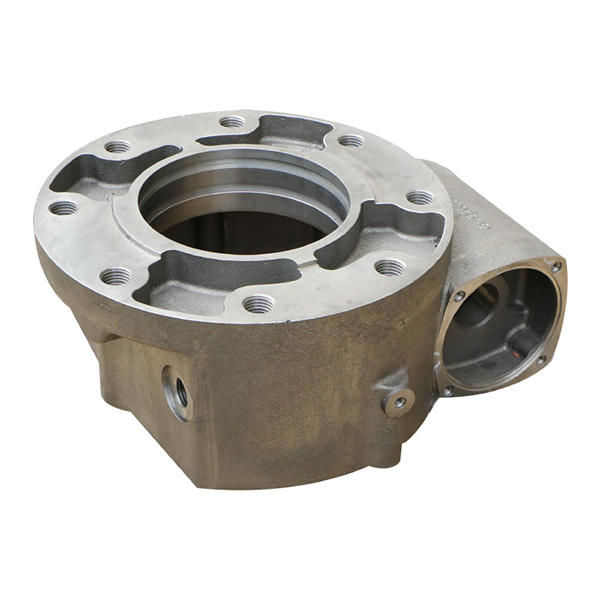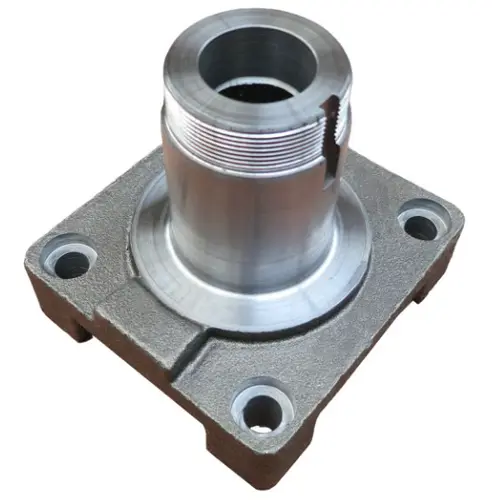
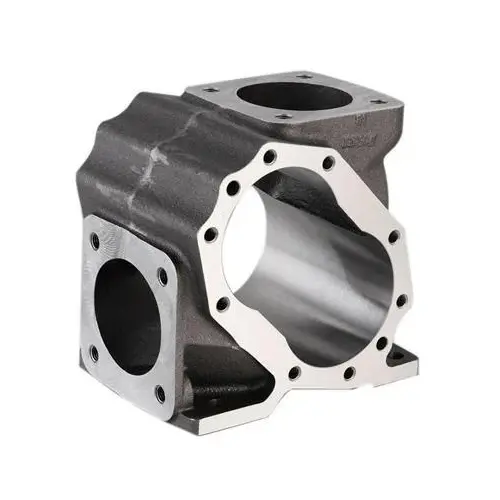
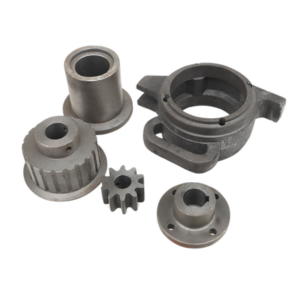
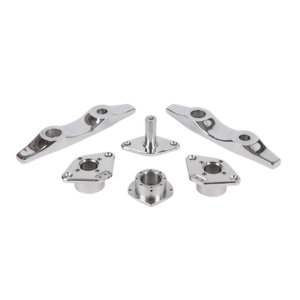
Alloy steel castings are castings that change their material properties by adding alloying elements to steel. Its main features can be summarized as follows:
1. High strength and high hardness: Chromium, molybdenum, nickel and other alloying elements are added to alloy steel castings. These elements can significantly improve the strength and hardness of the steel. This makes alloy steel castings excellent in mechanical properties such as tensile strength, compression resistance, and torsion resistance, and can withstand large external forces without being easily deformed or broken.
2. Good wear resistance: Due to the addition of alloy elements such as chromium and molybdenum, the wear resistance of alloy steel castings has been significantly improved. This enables alloy steel castings to maintain a long service life under harsh working conditions, such as high friction and high wear environments.
Excellent corrosion resistance: Alloying elements such as molybdenum and chromium can also improve the corrosion resistance of steel. This allows alloy steel castings to remain stable in highly corrosive environments such as chemical industry and ocean, and are less susceptible to corrosion damage.
Good machinability: Alloy steel castings have very good machinability and can be formed and processed through forging, machining and other methods. This enables alloy steel castings to produce workpieces of various shapes and sizes to meet the needs of different fields.
Casting process characteristics of alloy steel castings:
1. Smelting and pouring:
The melting process of alloy steel castings requires strict control of chemical composition and pouring temperature to ensure the material properties and internal quality of the castings.
When pouring, it is necessary to choose a suitable pouring system and pouring speed to avoid defects such as cold shut and insufficient pouring in the casting.
2. Molding sand and core:
The casting of alloy steel castings has high requirements for molding sand and cores. It is necessary to select molding sand and core materials with good refractoriness and yieldability to prevent defects such as cracks and shrinkage cavities in castings.
3. Solidification and feeding:
During the solidification process of alloy steel castings, due to the addition of alloy elements, the solidification characteristics may change. Corresponding feeding measures need to be taken, such as setting up risers, to ensure the internal quality of the castings.
4.Heat treatment:
Alloy steel castings usually require heat treatment after casting to eliminate casting stress, refine grains, and improve mechanical properties.
Application fields of alloy steel castings:
1. Automobile industry: Alloy steel castings are widely used in the manufacturing of automobile engines, such as engine cylinder heads, cylinder blocks, crankcases and other key components. These components need to withstand high-load working conditions, and the high strength, wear resistance and high-temperature properties of alloy steel castings meet these requirements.
2. Aerospace industry: In the aerospace field, alloy steel castings are also widely used, such as turbine blades and turbine casings of aerospace engines. These components require stable performance under extreme operating conditions, and the high-temperature strength and corrosion resistance of alloy steel castings make them up to the task.
3. Energy industry: Alloy steel castings are also widely used in the energy industry, such as reactor pressure vessels in nuclear power plants, boilers and flue gas purification equipment in coal-fired power plants, etc. These equipment need to withstand harsh working environments such as high temperature and pressure, and the high strength, heat resistance and corrosion resistance of alloy steel castings make them an ideal choice.
4. Petrochemical industry: In the petrochemical industry, alloy steel castings are used to manufacture various equipment, such as refinery towers, reactors, catalyst carriers, etc. These equipment need to withstand high temperature, high pressure and corrosive media, and the corrosion resistance and high temperature strength of alloy steel castings can meet these requirements.
5. Machinery manufacturing industry: Alloy steel castings are also widely used in the machinery manufacturing industry, such as manufacturing pressure vessels, pump bodies, valves, etc. These mechanical equipment need to withstand high-load working conditions, and the high strength and anti-wear properties of alloy steel castings make them suitable for these tasks.
6. Construction industry: Alloy steel castings also have certain applications in the construction industry, such as manufacturing large bridges and building offshore platforms. These building structures need to withstand a variety of forces and environmental conditions, and the high strength and weather-resistant properties of alloy steel castings make them an ideal choice.


